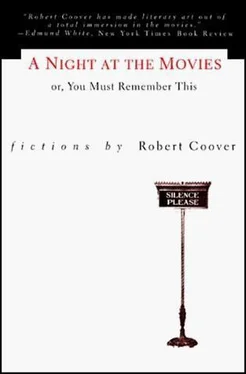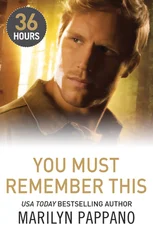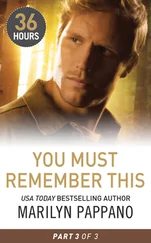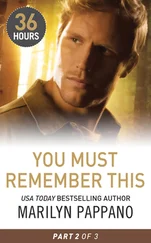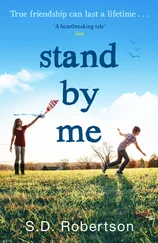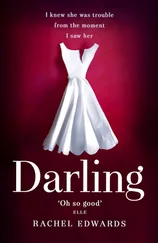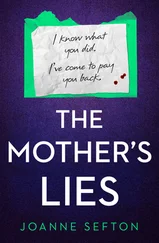He staggers into the mezzanine, stripping scraps of clinging celluloid from his throat, his mind locked into the simplistic essentials of movement and murder. He throws the light switch. Nothing happens. The alcove lights are also dead, the newel post lamps on the marble staircase, the chandeliers in the grand foyer. Darkness envelops him like swirling fog, teeming with menace. Turning to run, he slaps up against a tall column. At least, he thinks, hanging on, it didn't fall over. The marble feels warm to his touch and he hugs it to him as the ingenue's insane giggle rattles hollowly through the darkened palace, sweeping high over his head like a passing wind or a plague of twittering locusts. The column seems almost to be moving, as though the whole room, like a cyclorama, were slowly pivoting. He recalls an old movie in which the killer finds himself trapped on a merry-go-round spinning out of control, sparking and shrieking and hurling wooden horses into the gaping crowd like terrorists on suicide missions. The killer, too: he lets go, understanding at last as he slides helplessly across the polished terrazzo floor the eloquent implications of pratfalls. What he slams into, however, is not a gaping crowd, but the drinking fountain near the elevator lobby, its sleek ceramic skin as cold to the touch as synthetic flesh. He can hear the cavernous gurgle and splatter of water as though the fountains throughout the movie palace might be overflowing. Yes, his pants are wet and his toes feel squishy inside their shoes.
He's not far, he realizes, from the stairwell down to the rooms below, and it occurs to him, splashing over on his hands and knees (perhaps he's thinking of the bomb shelters in war movies or the motherly belly of the whale), that he might be able to hide out down there for a while. Think things out. But at the head of the stairs he feels a cold draft: he leans over and sweeps the space with his hand: The stairs are gone, he would have plummeted directly into the unchartered regions below! It's not completely dark down there, for he seems to see a dim roiling mass of ballroom dancers, drill sergeants, cartoon cats, and restless natives, like projections on smoke, vanishing even as they billow silently up toward him. Is that the ingenue among them? The one in the grass skirt, her eyes starting from their sockets? Too late. Gone, as though sucked away into the impossible chasms below.
He blinks and backs away. The room has come to a stop, a hush has descended. The water fountains are silent. The floor is dry, his pants, his shoes. Is it over? Is she gone? He finds a twist of licorice in his pocket and, without thinking, slips it between his chattering teeth. Whereupon, with a creaking noise like the opening of a closet door, a plaster statue leans out of its niche and, as he throws himself back against the wall, smashes at his feet. The licorice has disappeared. Perhaps he swallowed it whole. Perhaps it was never there. He's reminded of a film he once saw about an alien conspiracy which held its nefarious meetings in an old carnival fun house, long disused and rigged now ("now" in the film) for much nastier surprises than rolling floors and booing ghosts. The hero, trying simply to save the world, enters the fun house, only to be subjected to everything from death rays and falling masonry to iron maidens, time traps, and diabolical life-restoring machines, as though to problematize his very identity through what the chortling fun-house operators call in their otherworldly tongue "the stylistics of absence." In such a maze of probable improbability, the hero can be sure of nothing except his own inconsolable desires and his mad faith, as firm as it is burlesque, in the prevalence of secret passages. There is always, somewhere, another door. Thus, he is not surprised when, hip-deep in killer lizards and blue Mercurians, he spies dimly, far across the columned and chandeliered pit into which he's been thrown, what appears to be a rustic wooden ladder, leaning radiantly against a shadowed wall. Only the vicious gnawing at his ankles surprises him as he struggles toward it, the Mercurians' mildewed breath, the glimpse of water-spotted underwear on the ladder above him as he starts to climb. Or are those holes? He clambers upward, reaching for them, devoted as always to this passionate seizure of reality, only to have them vanish in his grasp, the ladder as well: he discovers he's about thirty feet up the grand foyer wall, holding nothing but a torn ticket stub. It's a long way back down, but he gets there right away.
He lies there on the hard terrazzo floor, crumpled up like a lounge-lizard in a gilded cage (are his legs broken? his head? something hurts), listening to the whisperings and twitterings high above him in the coffered ceiling, the phantasmal tinkling of the chandelier crystals, knowing that to look up there is to be lost. It's like the dockside detective put it in that misty old film about the notorious Iron Claw and the sentimental configurations of mass murder: "What's frightening is not so much being able to see only what you want to see, see, but discovering that what you think you see only because you want to see it
sees you
" As he stands there on the damp shabby waterfront in the shadow of a silent boom, watching the night fog coil in around the tugboats and barges like erotic ribbons of dream, the detective seems to see or want to see tall ghostly galleons drift in, with one-eyed pirates hanging motionless from the yardarms like pale Christmas tree decorations, and he is stabbed by a longing for danger and adventure — another door, as it were, a different dome — even as he is overswept by a paralyzing fear of the unknown. "I am menaced," he whispers, glancing up at the swaying streetlamp (but hasn't he just warned himself?), "by a darkness beyond darkness
" The pirates, cutlasses in hand and knives between their teeth, drop from the rigging as though to startle the indifferent barges, but even as they fall they curl into wispy shapes of dead cops and skulking pickpockets, derelicts and streetwalkers. One of them looks familiar somehow, something about the way her cigarette dances between her spectral lips like a firefly (or perhaps that is a firefly, the lips his perverse dream of lips) or the way her nun's habit is pasted wetly against her thighs as she fades away down a dark alley, so he follows her. She leads him, as he knew she would, into a smoky dive filled with slumming debutantes and sailors in striped shirts, where he's stopped at the door by a scarred and brooding Moroccan. "The Claw
?" he murmurs gruffly into his cupped hands, lighting up. The Moroccan nods him toward the bar, a gesture not unlike that of absolution, and he drifts over, feeling a bit airy as he floats through the weary revelers, as though he might have left part of himself lying back on the docks, curled up under the swaying lamp like a piece of unspooled trailer. When he sets his revolver on the bar, he notices he can see right through it. "If it's the Claw you're after," mutters the bartender, wiping a glass nervously with a dirty rag, then falls across the bar, a knife in his back. He notices he can also see through the bartender. The barroom is empty. He's dropped his smoke somewhere. Maybe the bartender fell on it. The lights are brightening. There's a cold metallic hand in his pants. He screams. Then he realizes it's his own.
He's lying, curled up still, under the chandelier. But not in the grand foyer of his movie palace as he might have hoped. It seems to be some sort of eighteenth-century French ballroom. People in gaiters, frocks, and periwigs are dancing minuets around him, as oblivious to his presence as to the distant thup and pop of musket fire in the street. He glances up past the chandelier at the mirrored ceiling and is surprised to see, not himself, but the ingenue smiling down at him with softly parted lips, an eery light glinting magically off her snow-white teeth and glowing in the corners of her eyes like small coals, smoldering there with the fire of strange yearnings. "She is the thoroughly modern type of girl," he seems to hear someone say, "equally at home with tennis and tango, table talk and tea. Her pearly teeth, when she smiles, are marvelous. And she smiles often, for life to her seems a continuous film of enjoyment." Her smile widens even as her eyes glaze over, the glow in them burning now like twin projectors. "Wait!" he cries, but the room tips and, to the clunk and tinkle of tumbling parts, all the people in the ballroom slide out into the public square, where the Terror nets them like flopping fish.
Читать дальше
